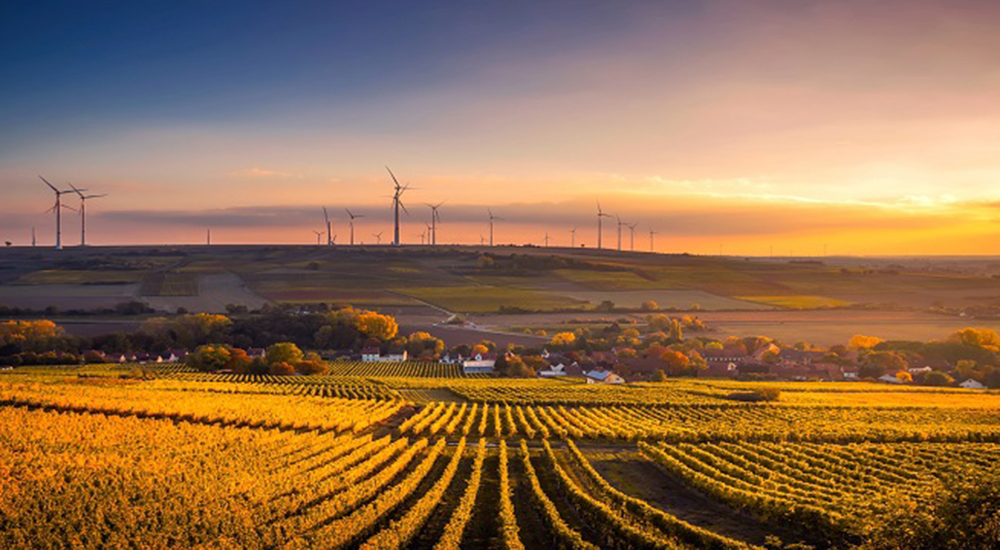VA is committed to providing high-quality health care to Veterans, including those who live in rural areas, during the coronavirus pandemic and beyond.
While COVID-19 has affected the lives of all Americans, the challenges facing rural communities during the pandemic leave residents particularly vulnerable. Nearly 5 million of our nation’s Veterans live in small communities.
In recognition of the 10th Annual National Rural Health Day, VA’s Office of Rural Health (ORH) highlights the resources available to support the health and well-being of everyone who calls a rural community home.
Ensure Veterans’ continuity of care
As the largest telehealth provider in the country, VA is equipped to virtually connect Veterans to the care they need. Telehealth offers a convenient alternative to in-person care that reduces Veterans’ COVID-19 exposure and travel time. To accommodate rural Veterans’ unique health care needs, ORH funds a variety of telehealth programs, such as tele-intensive care units, tele-primary care and tele-mental health hubs.
Offer free training and resources to community providers, including those in rural areas
As part of VA’s Fourth Mission efforts to combat the transmission of COVID-19, the department has extended health care services and resources to non-Veterans and community providers, resulting in:
- More than 8,000 contact hours of COVID-19 webinar trainings
- More than 2,000 VA staff members supporting non-VA facilities
- A with tailored COVID-19 guidance for community providers
Prioritize mental health in rural communities
Mental health and suicide prevention resources help save lives. These tools are especially critical for rural Veterans. They face a 20% greater risk of suicide than their urban counterparts.
To enhance VHA’s ongoing outreach to all Veterans, ORH funds an enterprise-wide initiative that focuses on suicide prevention. In fiscal year 2020, this program expanded to 12 locations that collectively reached more than 101,000 Veterans.
Suspend debt collections for VA medical care
In recognition of COVID-19’s economic impact, VA paused medical debt collection until Dec. 31, 2020. This temporary debt relief can be particularly impactful in rural communities. Over half of rural Veterans make less than $35,000 per year. VA also has financial hardship programs to help Veterans who may struggle to settle debt collections.
See recent updates to VA’s debt collections policies under COVID-19.
Develop innovative tools to support VHA’s workforce
The Veterans Health Administration (VHA) is committed to equipping its staff with the proper tools and resources to provide high-quality health care to our nation’s Veterans and members of the community.
In response to the pandemic, VHA developed the Rural Health COVID-19 Decision Support Tool – a dashboard which provides mission-critical insights that enable users to examine key trends and predict future challenges. By expanding access to vital resources, training and medical supplies, VA continues to support all providers and the Americans they care for during the pandemic – regardless of Veteran status.
Support
If you are a Veteran in crisis — or you’re concerned about one — free, confidential support is available 24/7. Call the Veterans Crisis Line at 1-800-273-8255 and press 1, send a text message to 838255 or chat online.
For Veteran-facing frequently asked questions about COVID-19 visit: https://www.va.gov/coronavirus-veteran-frequently-asked-questions/
For more information on COVID-19 mental health resources, visit: https://www.mentalhealth.va.gov/coronavirus.
To learn more about ORH, visit: https://www.ruralhealth.va.gov.
Thomas Klobucar is executive director of the VA Office of Rural Health.
Topics in this story
More Stories
Watch the Under Secretary for Health and a panel of experts discuss VA Health Connect tele-emergency care.
The 2024 National Veteran Suicide Prevention Annual Report provides the foundation for VA’s suicide prevention programs and initiatives.
Theranostics is a specialized field of nuclear medicine that uses a two-pronged approach to diagnose and treat cancer.








Seems like this article is only focused on Covid-19. What about any other given time when there isn’t a pandemic to contend with???? What was the va doing BEFORE the pandemic to help out veterans in rural communities?